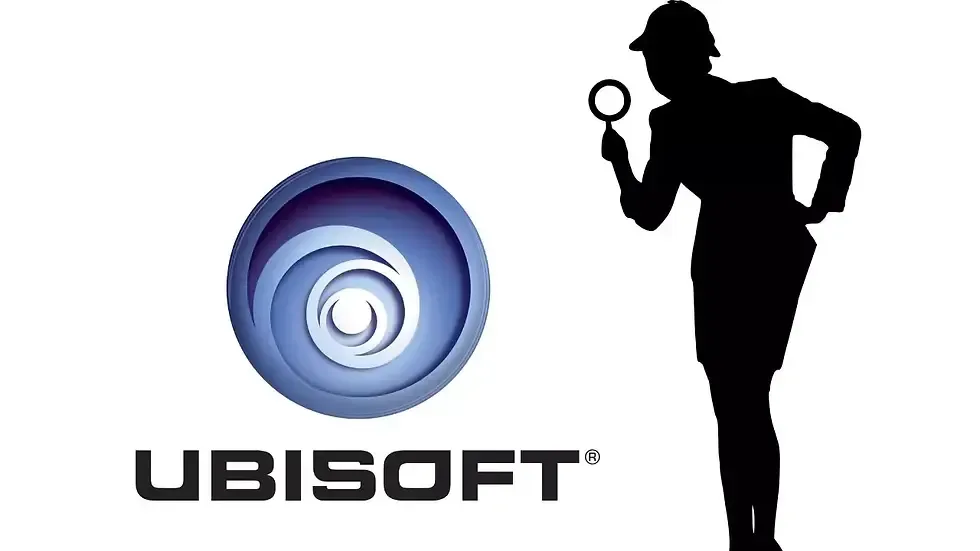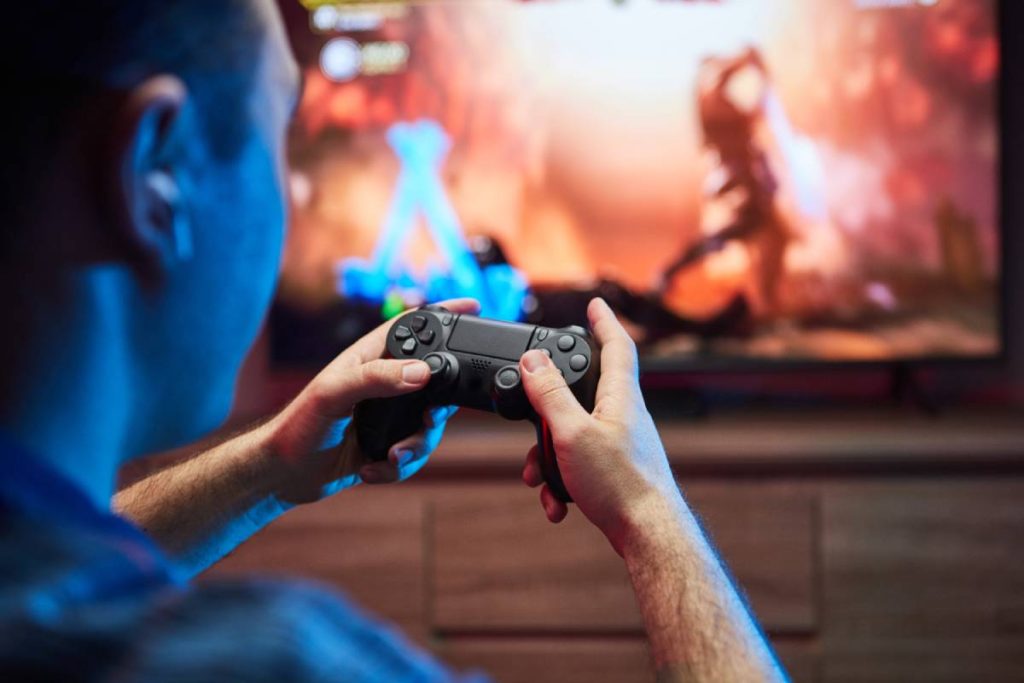The recent complaint against Ubisoft for data protection concerns has raised significant questions about the company’s compliance with stringent data privacy laws. Filed by the NGO NOYB, the complaint focuses on Ubisoft’s practice of enforcing “always online” connections for single-player games, which, according to critics, lacks a valid legal basis under GDPR compliance. This situation has sparked debates over digital rights, as players argue that their ability to enjoy standalone games should not be contingent upon online connectivity. NOYB’s findings reveal alarming details about the vast amounts of data being sent to entities like Google and Amazon, reinforcing the notion that players deserve clarity on the specifics of data usage. As the scrutiny of Ubisoft intensifies, the implications for the entire gaming industry concerning data protection practices continue to unfold.
In a striking move, a privacy advocacy group has lodged a formal grievance against Ubisoft, concerning the firm’s data handling and the controversial requirement for continuous online connections in their titles. This issue has stirred discussions about digital sovereignty and the rights of gamers in an era dominated by technology and data exchange. The organization argues that the data collection methods employed enable unauthorized access, raising serious ethical questions about user consent and transparency. Such practices, likened to digital intrusion, have opened the floor for broader discussions on how companies interact with user data and adhere to international standards like the GDPR. As the landscape of gaming continues to evolve, the need for rigorous safeguards around user data is more critical than ever.
Understanding the Ubisoft Data Protection Complaint
The complaint against Ubisoft filed by the NGO NOYB highlights significant concerns regarding the company’s data privacy practices. Essentially, the complaint argues that Ubisoft’s data collection efforts lack any legitimate legal basis, particularly under the European General Data Protection Regulation (GDPR) compliance standards. The player involved expressed alarm over the fact that an ostensibly single-player game, Far Cry Primal, mandates an ‘always online’ connection and requires users to be logged into their Ubisoft account, thus raising questions about user consent and transparency in data handling.
In an age where digital rights are paramount, the necessity for clear guidelines around data privacy becomes increasingly critical. The case has not only shed light on Ubisoft’s internal protocols but also on how gaming companies manage the balance between connectivity and user privacy. The multifaceted layers of data sent during gameplay have become a core issue, illustrating a growing tension between corporate policies and the rights of consumers in the digital landscape.
The Role of Data Privacy NGOs in Upholding Digital Rights
Non-profit organizations like NOYB play a vital role in advocating for consumer rights in the tech and gaming industries. By filing complaints against companies like Ubisoft, these organizations foster accountability and urge corporations to adhere to stringent data privacy laws, including GDPR compliance. The involvement of such NGOs highlights the critical need for transparency in data collection and usage, especially when digital interactions are as pervasive as they are today.
Moreover, the actions taken by NGOs against gaming giants underscore the ongoing struggle for digital rights and consumer protection. As players become more aware of the data privacy implications of their online habits, organizations that focus on digital rights are likely to gain even more prominence. Consumers are encouraged to engage with these organizations, ensuring that their voices are heard and their rights observed in the rapidly evolving digital ecosystem.
The Implications of ‘Always Online’ Game Requirements
Ubisoft’s ‘always online’ strategy raises critical discussions about the implications of such policies on player experience and data privacy. By necessitating constant internet connectivity for what many consider single-player experiences, the company may inadvertently infringe upon user privacy and data rights. As cited in the complaint, players have reported significant data packets being exchanged during gameplay, with many not realizing that their personal information could be disseminated to third-party entities like Google.
This requirement can be particularly disconcerting for consumers who value data protection and prefer to engage with their games offline. Ubisoft’s approach seems to clash with the expectations of modern gamers who may wish to enjoy immersive single-player experiences without the scrutinizing eye of data analytics and collection. Such practices challenge the very essence of player autonomy in the digital age, prompting an urgent need to reassess how gaming companies implement ‘always online’ frameworks.
The GDPR and Its Significance in Gaming
The General Data Protection Regulation (GDPR) serves as a crucial framework for protecting personal data and ensuring privacy within the European Union. This regulation sets a benchmark for companies, including those in the gaming industry, mandating that user consent is paramount when collecting personal data. Ubisoft’s alleged non-compliance with these laws may expose it to legal repercussions, especially amidst growing scrutiny regarding its data-handling methods.
For gamers, this underscores the importance of understanding their rights when engaging with digital products. The regulation not only facilitates transparency but also empowers players to take action if their data rights are violated. As this case exemplifies, the implications of GDPR on gaming extend beyond legal compliance; they also revolve around fostering trust and respect between gaming companies and their user communities.
Data Collection Concerns in the Gaming Industry
Data collection practices in the gaming industry have sparked intense debates over balance between technology and ethics, particularly with regards to user consent and privacy rights. Ubisoft’s practice of monitoring data packets has raised red flags among gamers and data privacy advocates alike. The concern lies in whether players fully understand what data is being collected and how it will ultimately be used, an area where the gaming industry often lacks transparency.
Moreover, the examples of Ubisoft’s data practices reflect a wider trend where users are often unaware of their digital footprints. Gaming companies, driven by a need for analytics to enhance customer experience, must tread carefully; they risk alienating their consumer base if trust is undermined due to opaque data policies. Engaging players in discussions about data privacy, as highlighted by the NOYB complaint, is essential for fostering a responsible and ethical gaming environment.
The Realities of User Experience vs. Data Protection
The tension between user experience and data protection is increasingly coming to the forefront due to stringent data privacy regulations. Gamers often find that features designed to enhance user experience, such as the ‘always online’ requirement, may lead to intrusive data collection practices. This reality poses a significant dilemma for both developers and players, as user satisfaction may be compromised in the pursuit of comprehensive data analytics.
While companies argue that data collection is necessary for improving game quality and fostering community interactions, the challenge remains: where is the line drawn between enhancing gameplay experience and ensuring robust data protection? Ubisoft’s predicament regarding the GDPR is a case in point; the need for compliance should not hinder the enjoyment or privacy of its users, necessitating a reassessment of how data is managed.
The Effect of GDPR on Global Gaming Policies
The European Union’s GDPR has far-reaching implications, extending beyond Europe to influence global gaming policies. Companies like Ubisoft, which operate on an international scale, must align their data practices with these stringent regulations. This could lead to a paradigm shift where privacy becomes a foundational aspect of game design rather than an afterthought, serving as a model for other regions.
As gaming companies recalibrate their data handling strategies to meet GDPR standards, consumers can expect a change in the landscape. Policies that prioritize data protection and user rights are likely to gain traction, shaping the future of how games integrate online requirements. Lessons learned from the Ubisoft data protection complaint could inspire a wave of similar actions around the globe, advocating for digital rights and ethical practices in gaming.
Championing Consumer Rights in Digital Entertainment
The evolving circumstances of Ubisoft’s data protection complaint emphasize a critical juncture in the gaming industry—championing consumer rights in digital entertainment. Striking a balance between corporate interests and user rights is no longer optional; it’s essential for fostering long-term relationships with players. As organizations like NOYB bring attention to such issues, they effectively amplify the voice of the consumer, demanding accountability from gaming giants.
Policy advocacy not only raises awareness about digital rights issues but also educates gamers on their rights within the digital sphere. By standing together against practices that undermine user privacy, consumers can drive companies toward more ethical standards and transparent operations. The response to Ubisoft’s complaint could set a precedence that encourages a broader movement toward strengthened consumer protection in the realms of digital entertainment.
The Future of Gaming and Data Privacy
As data privacy concerns continue to surface within the gaming sector, the future of gaming may increasingly hinge on compliance with regulations like the GDPR. The Ubisoft data protection complaint serves as a timely reminder that player experiences shouldn’t come at the cost of their personal information. Innovative game developers are challenged to create engaging games that uphold privacy rights, linking gameplay experience with ethical data handling practices.
This shifting landscape promises to bring more attention to data protection in the gaming industry, encouraging companies to adopt responsible data practices that resonate with player expectations. As discussions around privacy and data ethics continue to evolve, the hope is for a gaming industry where technological advancements do not compromise user rights, ensuring a more secure environment for all players.
Frequently Asked Questions
What is the nature of the Ubisoft data protection complaint filed by NOYB?
The Ubisoft data protection complaint, filed by the NGO NOYB (European Center for Digital Rights), alleges that Ubisoft’s data collection practices lack a valid legal basis and infringe on users’ data privacy rights. This complaint highlights that players are required to maintain an ‘always online’ connection to play single-player games, like Far Cry Primal, raising concerns about GDPR compliance.
How does Ubisoft’s ‘always online’ requirement relate to data privacy issues?
Ubisoft’s ‘always online’ requirement is central to the data privacy issues raised in the complaint. Players must log in to their Ubisoft accounts to access single-player content, which NOYB argues violates digital rights and GDPR compliance by mandating unnecessary data transmission to external servers, posing potential risks to user privacy.
Why did NOYB file a complaint regarding Ubisoft’s data collection practices?
NOYB filed a complaint against Ubisoft due to concerns that the data collection practices associated with its games, especially under the ‘always online’ model, are excessive and lack a proper legal framework. The organization asserts that these practices violate GDPR compliance and undermine players’ digital rights.
What are the key allegations made against Ubisoft in the complaint?
Key allegations in the Ubisoft data protection complaint include that the company collects substantial user data without appropriate consent, necessitates online connectivity for single-player games, and fails to adequately disclose what information is being transmitted and its purpose. NOYB argues that these practices constitute digital trespassing and violate users’ privacy rights.
What implications could the Ubisoft complaint have for other gaming companies regarding data privacy?
The implications of the Ubisoft complaint could be significant for other gaming companies, as it sets a precedent for scrutinizing data collection and ‘always online’ practices. If the complaint succeeds, it could lead to increased accountability for data privacy and stricter adherence to GDPR compliance across the gaming industry, reinforcing players’ digital rights.
How can players assure their data privacy when playing Ubisoft games?
Players can assure their data privacy when playing Ubisoft games by being aware of the terms of service, limiting data sharing preferences in their account settings, and avoiding unnecessary data collection features. Additionally, users can advocate for better data protection practices by supporting organizations like NOYB that challenge companies over data privacy concerns.
What steps is Ubisoft taking in response to the data protection complaint?
In response to the data protection complaint, Ubisoft has publicly acknowledged the ongoing situation and may be reviewing its data collection practices to ensure they align with regulatory standards like GDPR compliance. However, as of now, they have filed a motion to dismiss a related class action lawsuit, indicating a defensive approach to potential legal repercussions.
What can players do if they believe Ubisoft has violated their data privacy rights?
Players who believe that Ubisoft has violated their data privacy rights can file complaints with relevant data protection authorities or consumer protection organizations. They can also support advocacy groups, like NOYB, that are working to uphold digital rights and ensure compliance with GDPR regulations.
| Key Point | Details |
|---|---|
| Complaint Overview | NOYB has filed a complaint against Ubisoft regarding data protection and privacy concerns. |
| Player’s Issues | A player’s inability to play Far Cry Primal offline or without an Ubisoft account raises alarms. |
| Data Collection Practices | The complaint alleges that Ubisoft’s data collection lacks a valid legal basis and invades player privacy. |
| Technical Findings | Player identified 150 DNS packets sent during gameplay, which included requests to external servers, indicating extensive data sharing. |
| Company’s Defense | Ubisoft claims the data sent is a standard ownership check to validate game access. |
| Potential Consequences | The complaint could lead to fines and compel Ubisoft to comply with GDPR regulations. |
| Legal Comparison | The lawsuit compares Ubisoft’s practices to digital ‘trespassing’, asserting they are illegal. |
Summary
The Ubisoft data protection complaint highlights serious concerns regarding the company’s data collection practices and the adverse impact of its mandatory online connections for single-player games. As NOYB argues, such practices likely violate GDPR regulations, which require clear justification for data gathering. This case illustrates the growing scrutiny of digital privacy policies and sets a significant precedent for enforcement of data protection laws in the gaming industry.



